Roger Boltshauser, Cyril Veillon, Nadja Maillard (eds.)
Pisé. Rammed Earth
– Tradition and Potential
English edition
Book design: Büro 146, Zurich
304 pages, 400 images, 22 × 30 cm, thread-stitching with non-attached gate-folded cover
Euro (D) 60.–, Euro (A) 61.70
Euro (D) 60.–, Euro (A) 61.70
ISBN
978-3-03863-028-9
This book for the first time illustrates the history and significance of rammed earth construction in Central Europe, particularly in Switzerland, using historical examples to investigate the potential of that building technique for contemporary construction. As such, it represents a pioneering comprehensive documentation that will contribute to safeguarding existing architectural monuments, while also providing the foundation for further research.
Based on that evidence, the editors investigate the material’s potential for modern day edifices, especially from the perspective of regional architecture claiming to establish identity and save resources.
Due to the material’s advantages – rammed earth is strong, durable and non-combustible as well as providing quality indoor air conditions – it was already used in the 16th and 17th centuries. Today, disadvantages such as on site weather-dependency can be circumvented by using prefabricated elements. Possible load bearing problems solely due to pressure can be bypassed by pre-stressing the structure. By carrying out measures such as these, the building material – being ecologically sustainable and completely recyclable – will become an attractive alternative for contemporary construction methods.
Based on that evidence, the editors investigate the material’s potential for modern day edifices, especially from the perspective of regional architecture claiming to establish identity and save resources.
Due to the material’s advantages – rammed earth is strong, durable and non-combustible as well as providing quality indoor air conditions – it was already used in the 16th and 17th centuries. Today, disadvantages such as on site weather-dependency can be circumvented by using prefabricated elements. Possible load bearing problems solely due to pressure can be bypassed by pre-stressing the structure. By carrying out measures such as these, the building material – being ecologically sustainable and completely recyclable – will become an attractive alternative for contemporary construction methods.
About the Editors
Roger Boltshauser, degree in architecture ETH BSA SIA. Established Boltshauser Architekten in Zurich in 1996. Besides running the practice, Boltshauser also taught at ETH Zurich and EPF Lausanne, HTW Chur and Chur Institute of Architecture CIA from 1996 to 2009. He was visiting professor at EPFL Lausanne and TU Munich. Currently, he is visiting lecturer at ETH Zurich.
Cyril Veillon graduated from the University of Paris VIII. From 2004 to 2007 he taught at the Multimedia- und Kunstschule EMAF in Freiburg, Switzerland, opening a contemporary art gallery in Lausanne together with Lucy Mackintosh in 2004. He has produced art and architecture exhibitions in Lausanne, Zurich, London, Shanghai and Dubai. In 2008, he was appointed director of the Archizoom exhibition space at EPFL Lausanne.
Nadja Maillard studied history and anthropology, graduating from the EPF Lausanne with a thesis on the history of architecture. Maillard is an
academic staff member at the head office Departement Architecture of EPFL Lausanne. As an author and editor, she is currently working on a publication dealing with questions relating to construction and living.
Cyril Veillon graduated from the University of Paris VIII. From 2004 to 2007 he taught at the Multimedia- und Kunstschule EMAF in Freiburg, Switzerland, opening a contemporary art gallery in Lausanne together with Lucy Mackintosh in 2004. He has produced art and architecture exhibitions in Lausanne, Zurich, London, Shanghai and Dubai. In 2008, he was appointed director of the Archizoom exhibition space at EPFL Lausanne.
Nadja Maillard studied history and anthropology, graduating from the EPF Lausanne with a thesis on the history of architecture. Maillard is an
academic staff member at the head office Departement Architecture of EPFL Lausanne. As an author and editor, she is currently working on a publication dealing with questions relating to construction and living.
With contributions by: Romain Anger and Laetitia Fontaine (amàco),
Roger Boltshauser, Rodrigo Fernandez and Laurent de Wurstemberger (terrabloc), Guillaume Habert, Gian Salis, Marlène Witry, Guillaud Hubert, Ernest Menolfi, Isabelle Brunier, Jesús Vassalo, Corentin Fivet, Martin Rauch, Martin Tschanz, Felix Hilgert, Ryszard Gorajek, Marco Waldhauser, Tobias Fiedler, Jörg Habenberger, Jürg Conzett, Janina Flückiger, Dominque Gauzin-Müller, Paolo Tombesi. Photography by Philip Heckhausen.
DOWNLOAD Waschzettel_Pisé–Stampflehm_Deutsch ›
DOWNLOAD Blurb_Pisé–RammedEarth_English ›
DOWNLOAD Information_Pisé_Français ›
DOWNLOAD Cover_Pisé_EN ›
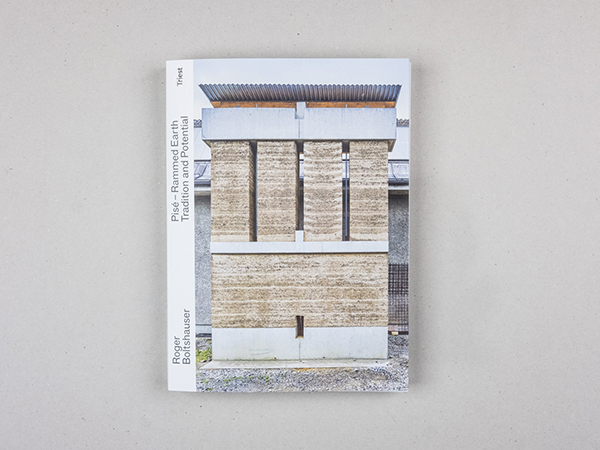
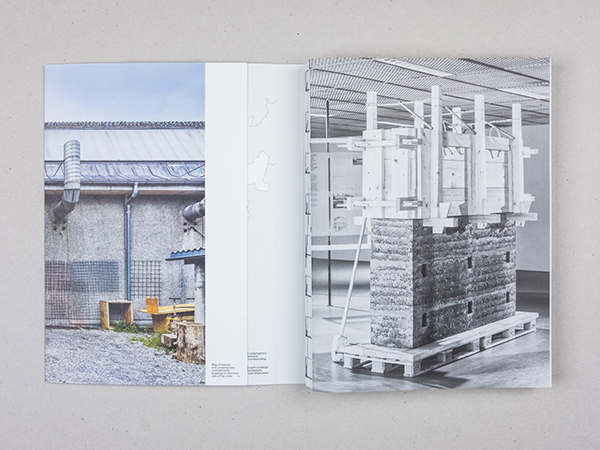
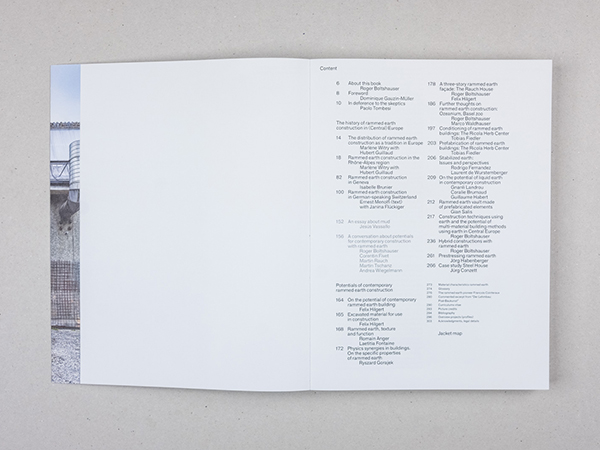
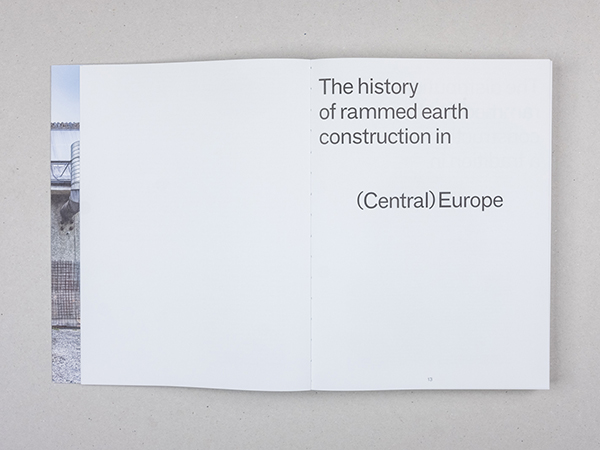
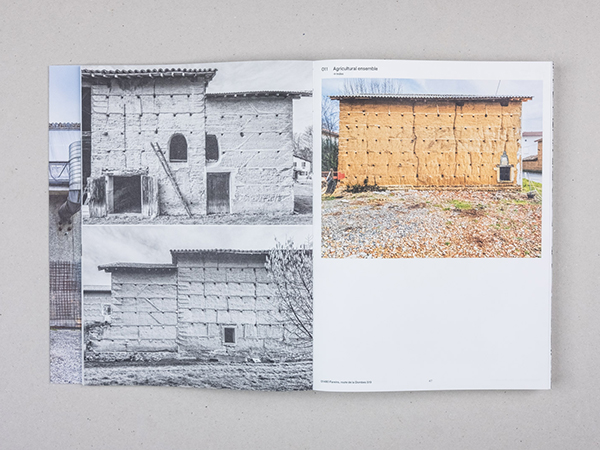
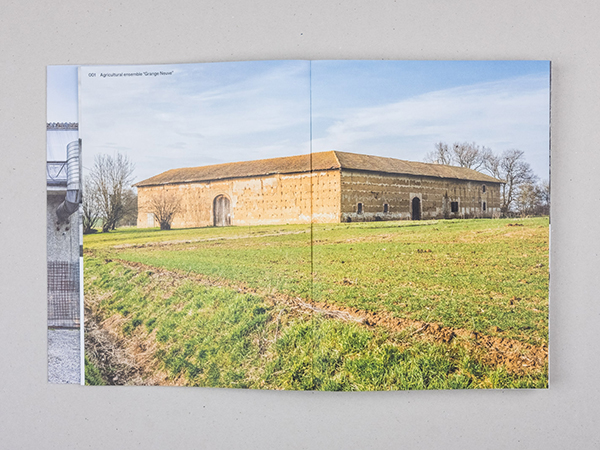
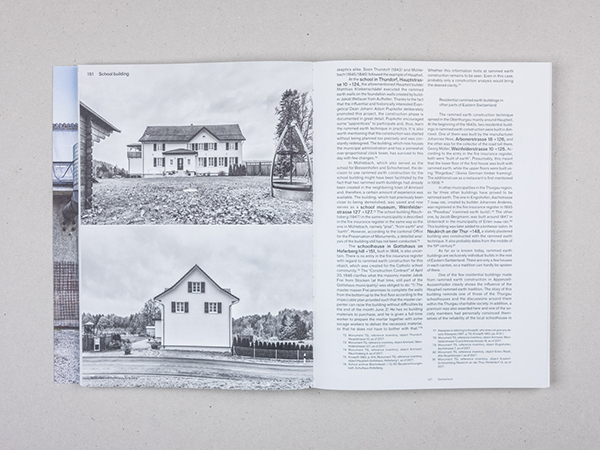
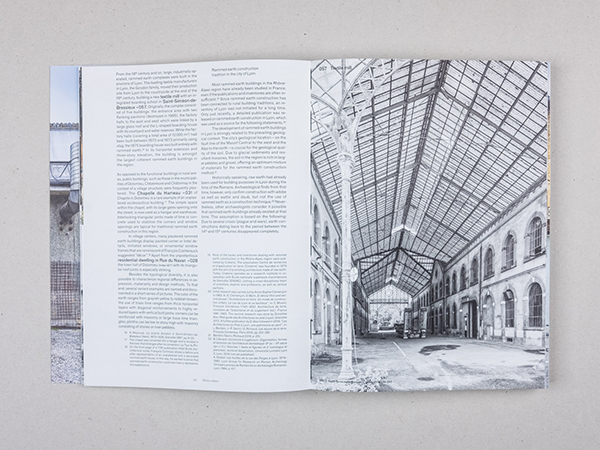
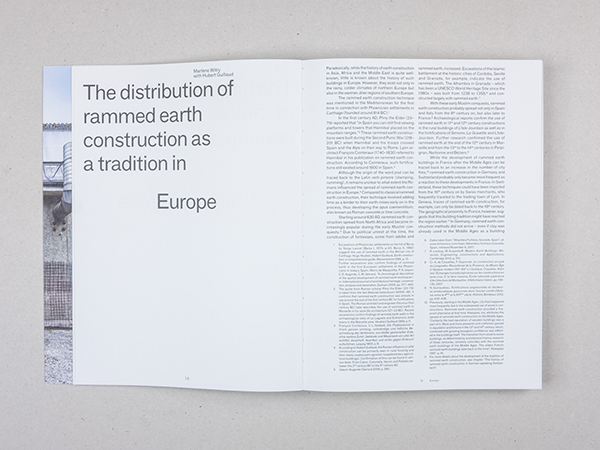
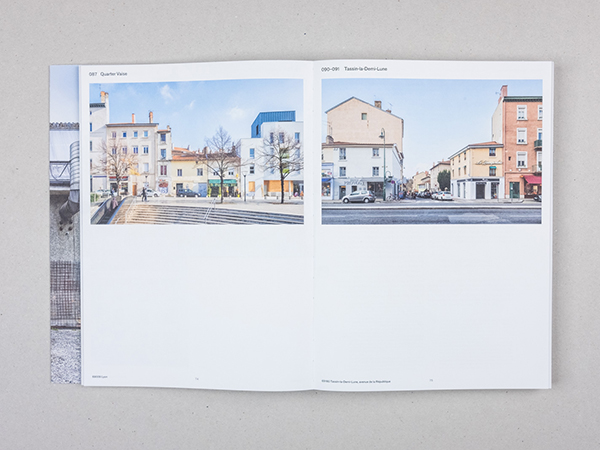
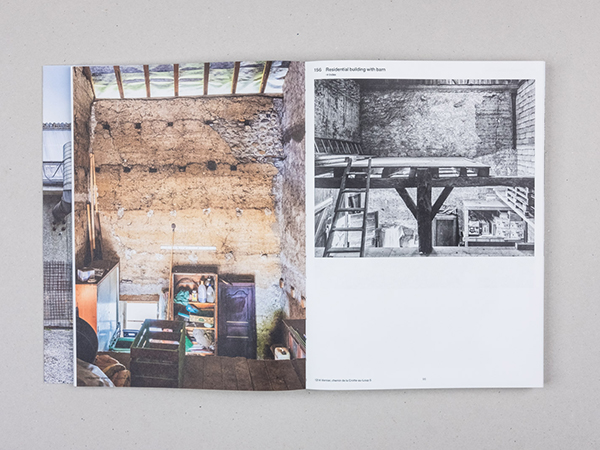
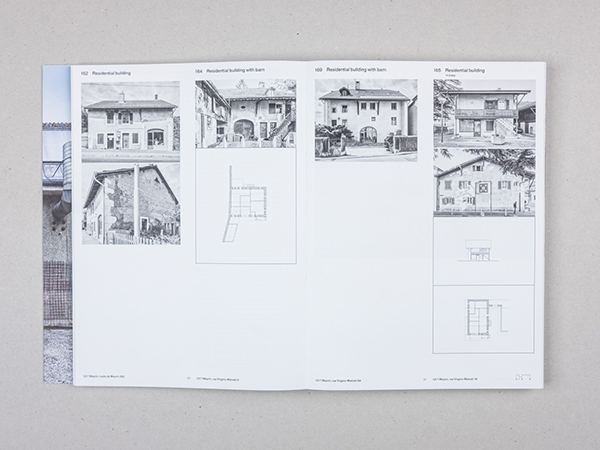
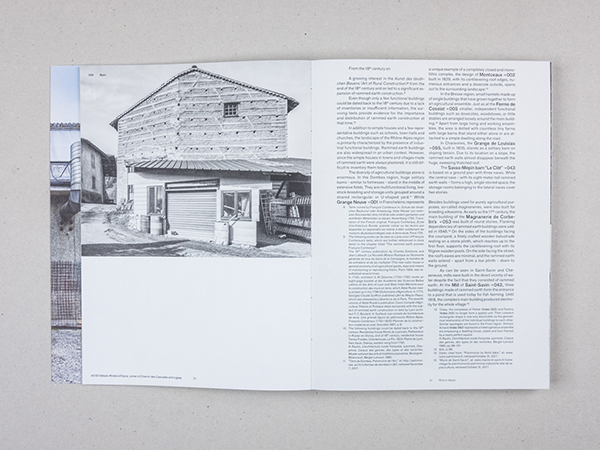
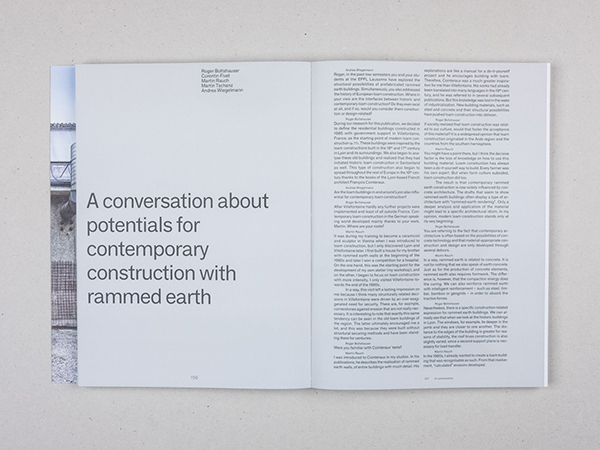
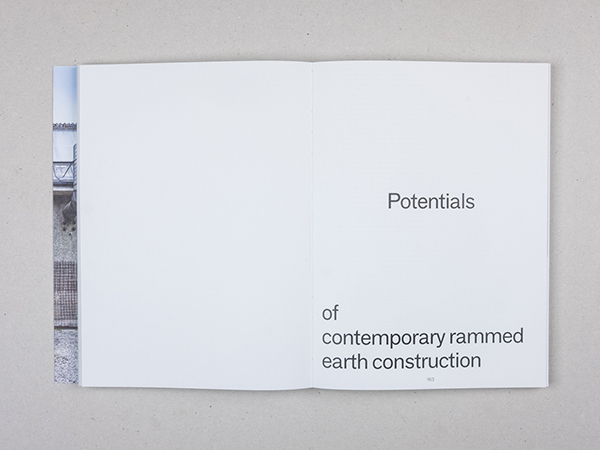
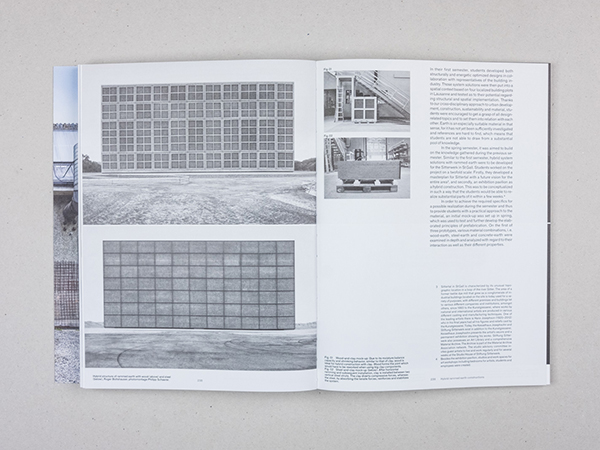
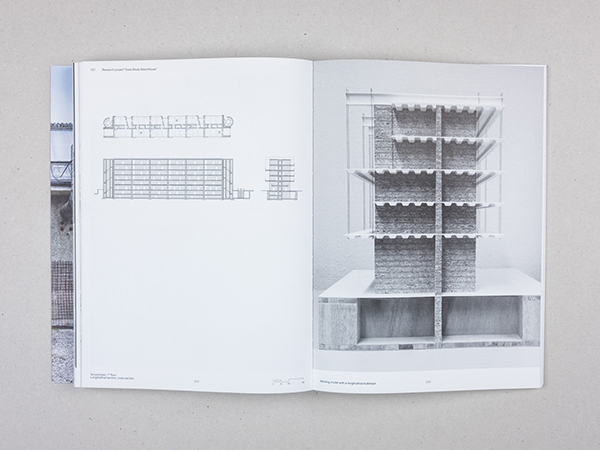
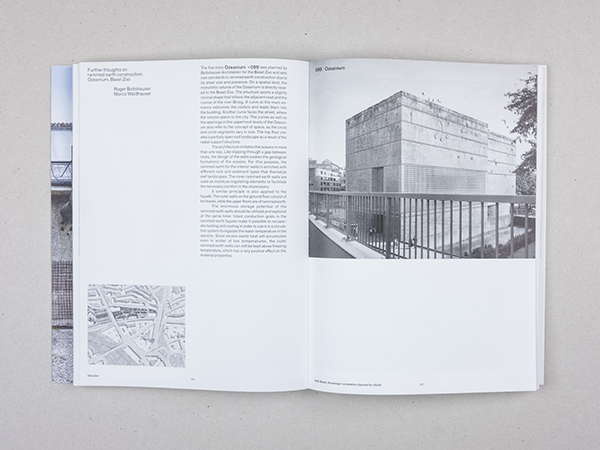
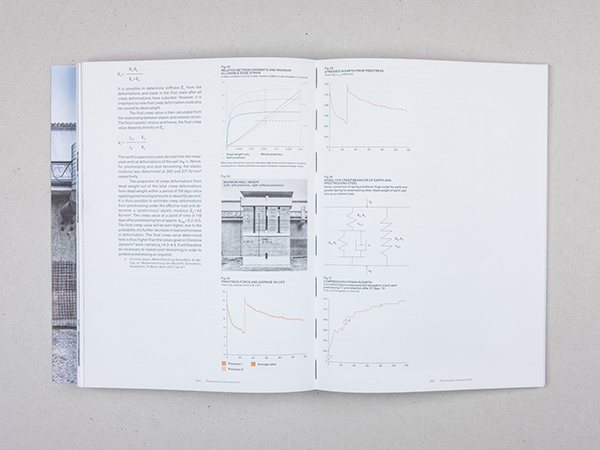
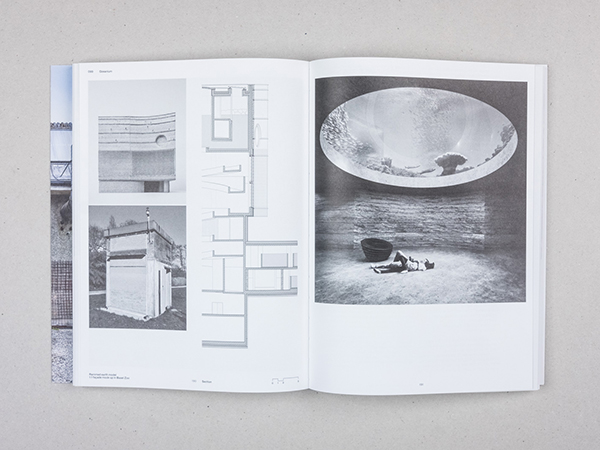
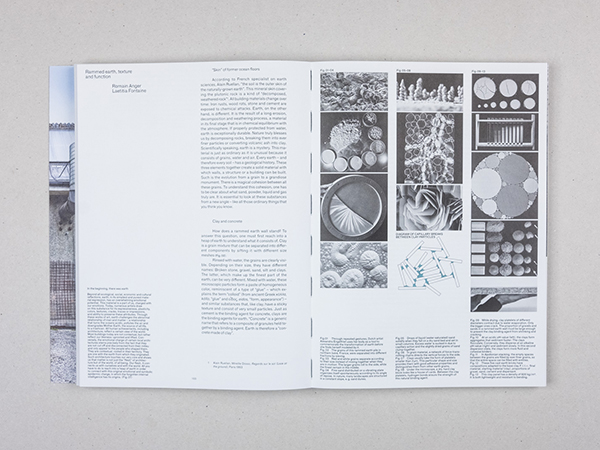
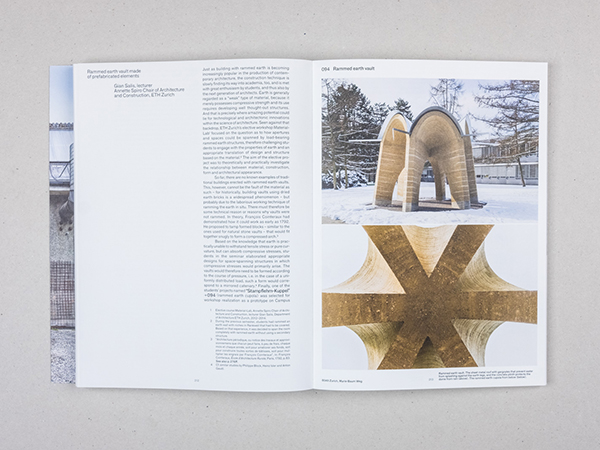
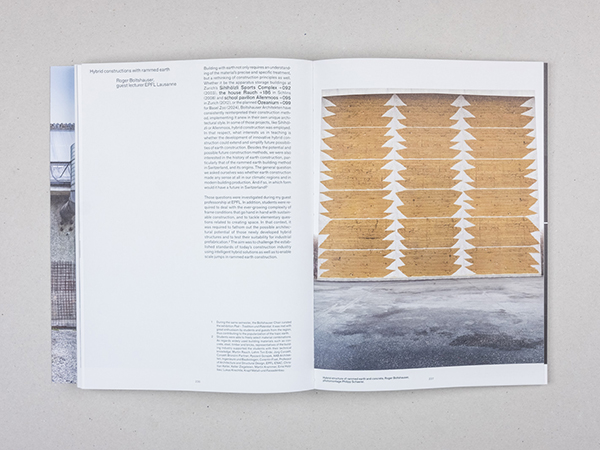
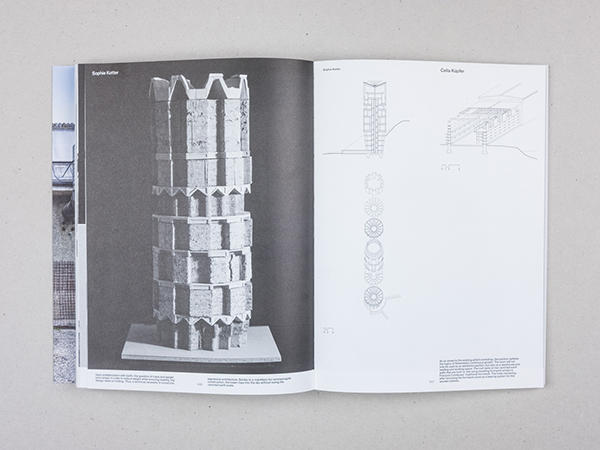
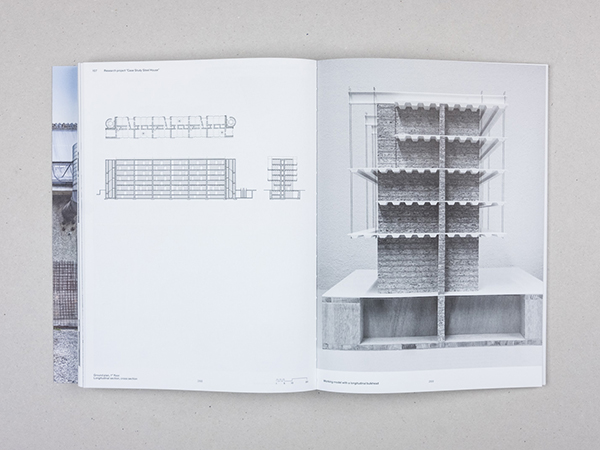
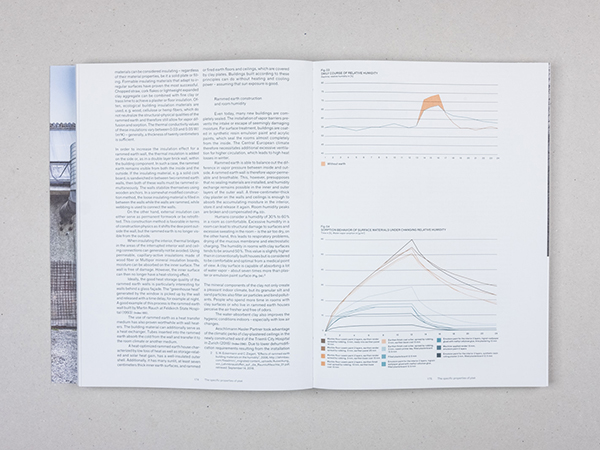
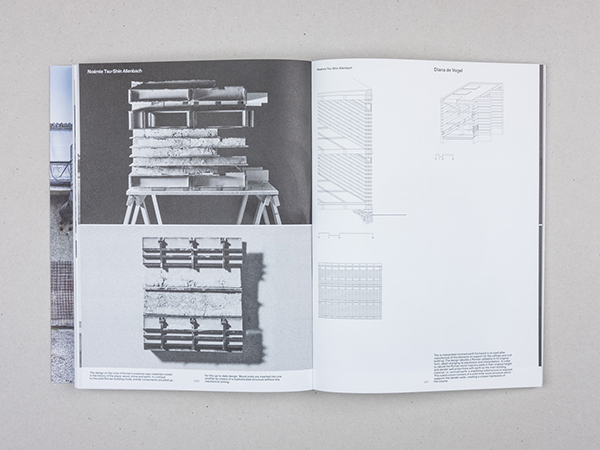
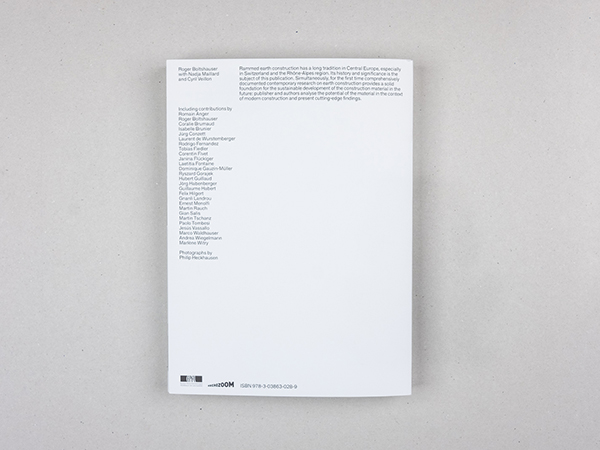
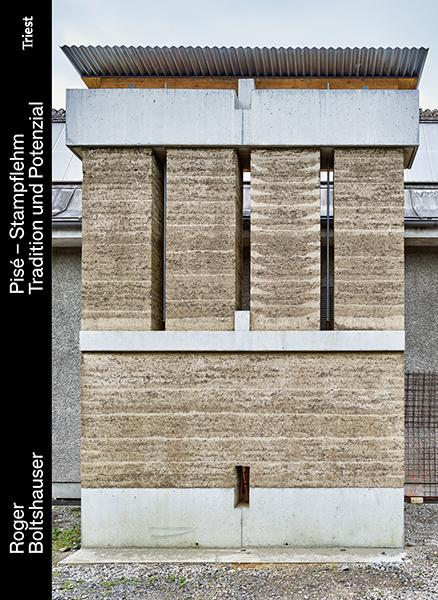
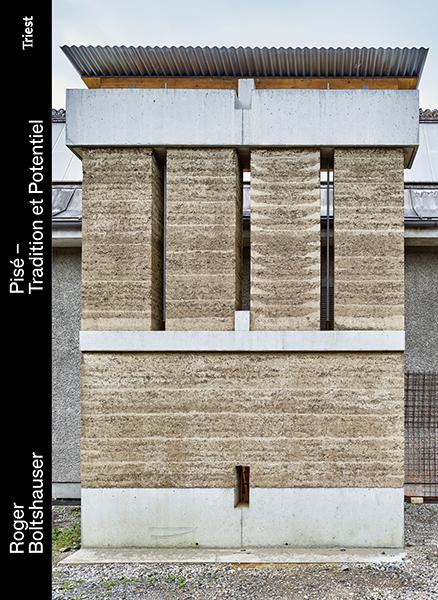
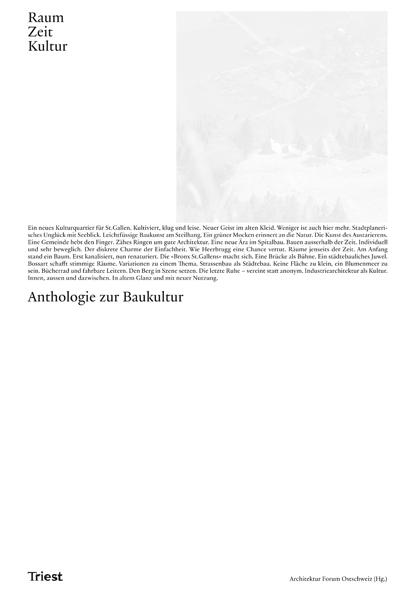
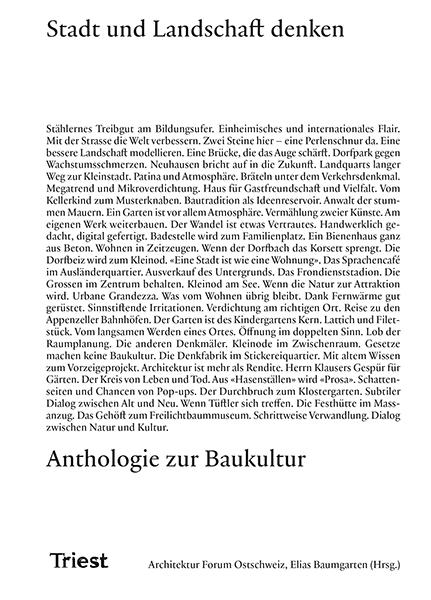
![Physik der Farbe [Physics of Colour]](/photo/data/978-3-03863-021-0-physik-der-farbe-triest-verlag-design-buch-731-2994-5.png?ts=1734502849)
